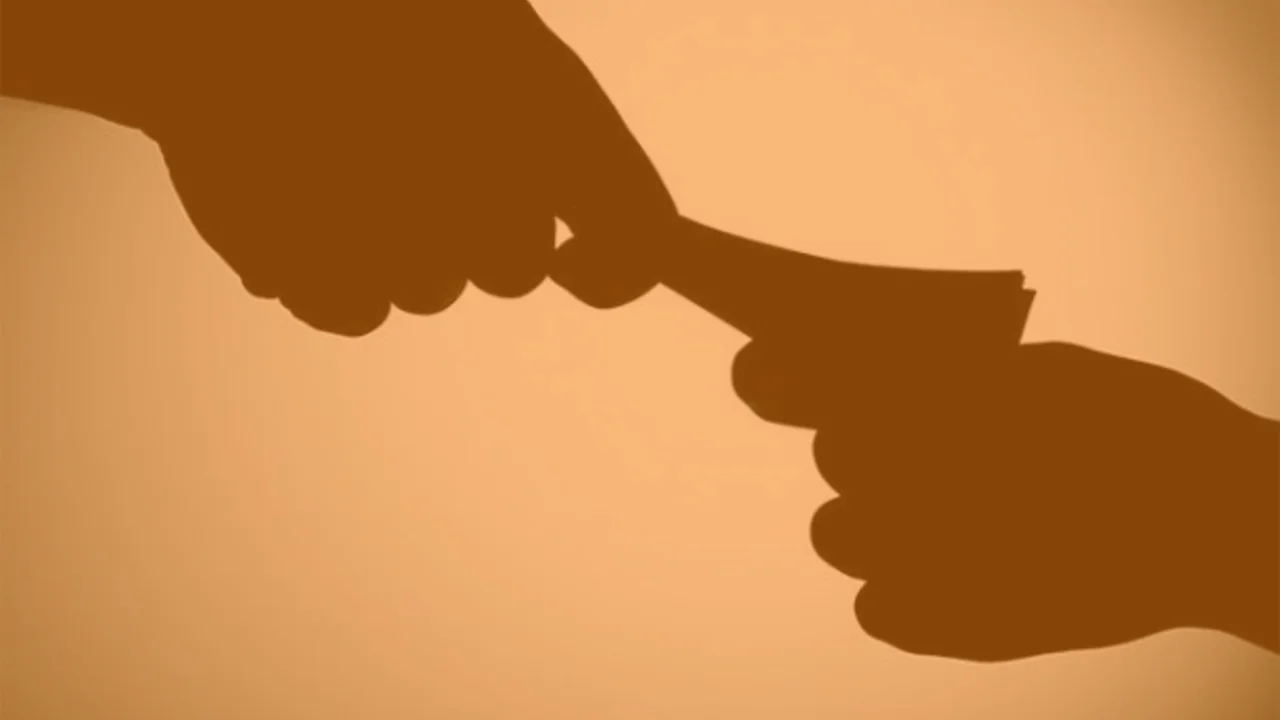In Iran Bureaucratic Bribes Can Cost You Anything From A Gold Coin To Sexual Relationship
Bribery goes by many names in Iran -- “under the table,” “tea money,” “share for the guys,” and “goodies”-- but however you refer to it, the rampant graft has long been a key feature of Iran’s administrative systems. Local municipalities, law enforcement agencies, courts, and the National Tax Administration appear to be at the forefront of institutions where graft is rampant, a new Iran Open Data survey suggests.
The survey also shows that among non-cash forms of bribes in Iran, gold coins are the most common, followed by a wide range of items, everything from plots of land, home appliances, and iPhones to carpets, spices, opium and in some cases, sexual solicitation.
Municipalities, “leaders in bribery”
Iran Open Data recently asked the people inside Iran on various social media platforms to share their experiences regarding bribery in public offices. We asked whether they have ever had to pay a bribe? If so, what was the reason? How much did they pay? And to what office or government office did the bribe-taker belong? In total, more than 400 people participated.
The greatest number of bribery cases were said to be related to local municipalities. Respondents to the survey said that they had to pay bribes to staff in municipalities for basic services such as requesting construction permits, changing the use of a property, and resolving a simple violation.
Making traffic tickets disappear
Participants in our survey also said that bribery is widespread in Iran's traffic police. Though these participants admitted to being guilty of violations such as speeding and not carrying proper documentation, they avoided heavy fines by bribing the officers.
Respondents also said bribery is rampant in the law enforcement. Several participants reported paying bribes to police officers and the Basij militia stationed at checkpoints to avoid being penalized for the possession of alcohol and drugs, as well as listening to loud music in the car.
Other individuals also reported bribing the law enforcement to have them properly investigate their theft or extortion theft complaints to police.
Courts, banks, tax office
The National Tax Administration ranked third in our survey of the prevalence of bribe demand in Iran. Reducing taxes and obtaining a taxpayer identification number were among the most common reasons for paying bribes.
Courts, banks, and customs agency were among the other departments where respondents had to pay bribes. Seeking a favorable verdict from judges is one of the primary reasons participants cited for paying bribes in the judiciary.
In the civil registration offices, the process of obtaining a birth certificate and issuing a national card are among the reasons participants pay a bribe to the registrar.
Some of the participants mentioned paying bribes in school to get a passing grade or enroll their child in a school outside their area of residence.
Gold and opium
One of the questions asked in the survey was the type and amount of bribes paid, to which the participants gave a variety of answers. Among non-cash items, gold coins are the most common form of bribery. Respondents have paid bribes of one to 25 coins. But non-cash bribery covers a wide range of items: home appliances such as side-by-side refrigerators, plots of land, sheeps, iPhones, carpets, spices, and saffron.
There were also several exceptional examples of non-cash bribes such as givinving a few ounces of opium. Soliciting a sexual act was also one of the unusual cases of bribery mentioned by the respondents in the Iran Open Data survey.
This article was originally published in Persian (available here).



